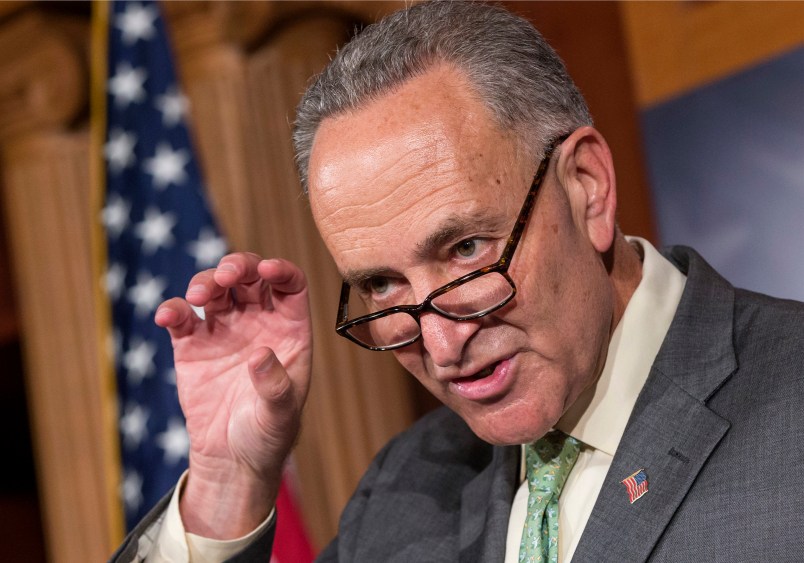Sen. Chuck Schumer has a message for fellow Democrats: we screwed up and let the tea party achieve a stranglehold on the national debate, but we can still crush them.
In a speech planned for Thursday afternoon at the Center For American Progress, a liberal think tank in Washington, the New York Democrat is poised to lay out his plan to marginalize the right-wing movement by exploiting what he describes as its “glaring weakness”: a deep rift between the moneyed interests that fuel the tea party and the wants of its average follower.
“[T]here is a glaring weakness, one very weak link in the tea party’s armor, which is an inherent contradiction within the tea party that I believe can be exposed to greatly weaken their hold on the policy debate,” he will say, according to prepared remarks. “The fundamental weakness in the tea party machine is the stark difference between what the leaders of the tea party elite, plutocrats like the Koch Brothers want and what the average grassroots tea party follower wants.”
Schumer — the No. 3 Democratic senator and his party’s guru for policy and messaging — will concede that Democrats failed to respond to the tea party’s effective exploitation of declining middle-class incomes and America’s cultural shifts by tarring government as necessarily bad. “Unfortunately, we Democrats really didn’t have much of an antidote to this quack medicine; we let the argument go basically unchallenged,” he will say. “It allowed the tea party to fill the vacuum and capture the anger that was bubbling in the land.”
His prescription is to drive home the message that ordinary tea party followers may hate government in the abstract but they like actual government programs. “The fundamental contradiction here,” he’ll say, “is … the average tea party member likes and wants to retain most of what government does … The average tea party member, like the average American, likes government run Medicare, likes government built highways and water and sewer lines, likes government support for education, both higher and lower.”
He’ll also call for chipping away at the Supreme Court’s Citizens United ruling in order to marginalize big-spending “tea party elites,” and propose an electoral reform plan in which the top two vote-getters in a primary enter a run-off.
“This,” the senator will say, “would prevent a hard-right candidate from winning with 22 percent of the vote and force even the most extreme candidates to move further to the middle.”






